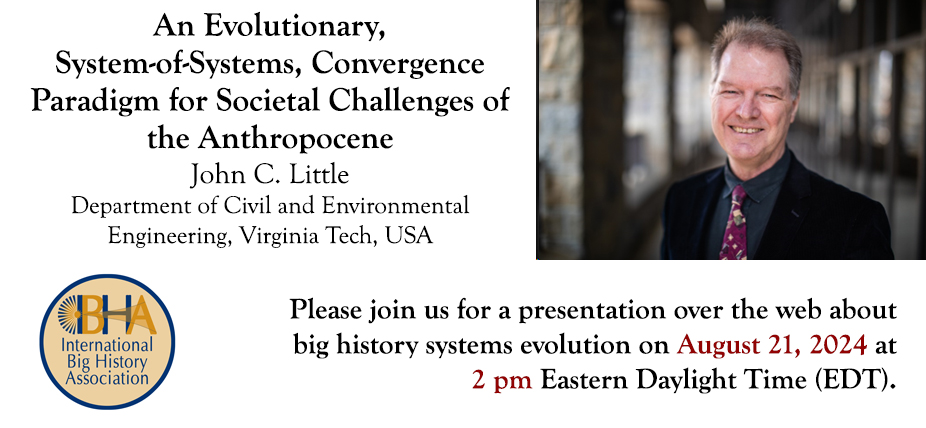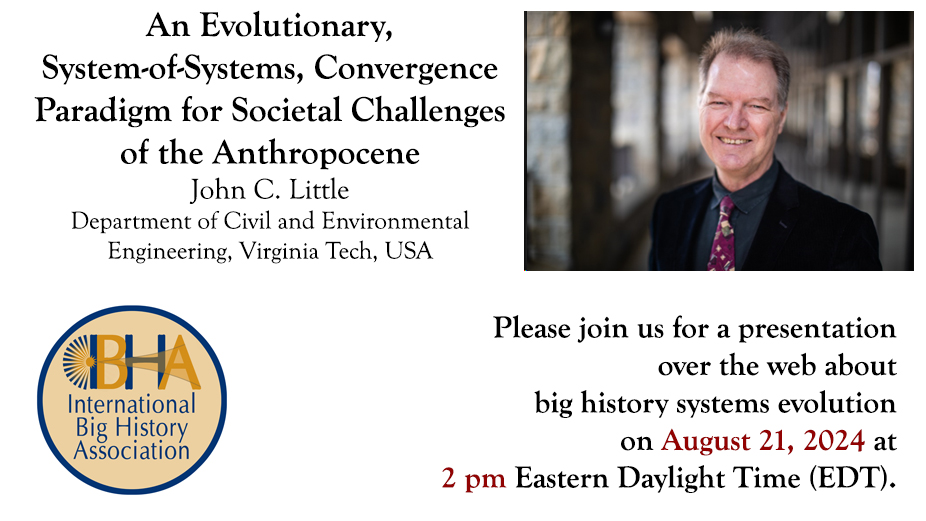
Abstract: Evolutionary mechanisms enabled humans to irreversibly transform Earth systems, culminating in the present-day, globally connected, system of Anthropocene systems. Because Anthropocene systems are highly interdependent and dynamically evolving, often with accelerating rates of cultural and technological evolution, the ensuing family of societal challenges (e.g., climate change and impacts, renewable energy, adaptive infrastructure, disasters, pandemics, food insecurity, biodiversity loss, sustainability, resilience and equity) must be framed and addressed in an integrated manner. To catalyze the required societal transformations, an evolutionary, system-of-systems (evoSoS) convergence paradigm is needed to coordinate strategic interventions across multiple systems and scales. The new paradigm requires a major transformation in our approach to science and engineering and includes an evoSoS computational framework, evoSoS decision-support system and evoSoS pedagogy. A new generation of Anthropocene systems integrators is needed to create a meta-discipline that spans all the disciplines associated with societal challenges of the Anthropocene.
Bio: John Little received a BS in Chemical Engineering from the University of Cape Town and an MS and PhD in Environmental Engineering from the University of California, Berkeley. He is currently the Charles E. Via, Jr. Professor in the Department of Civil and Environmental Engineering at Virginia Tech in Blacksburg, Virginia. His earlier research focused on process dynamics in environmental systems but has now broadened to Anthropocene systems. John has been a visiting professor at University of Sydney, Australia, Swiss Federal Institute for Aquatic Science and Technology (Eawag), Switzerland, Tsinghua University, China, National Cheng Kung University, Taiwan, University of Granada, Spain, Centre Scientifique et Technique du Bâtiment, France, and University of La Rochelle, France.


